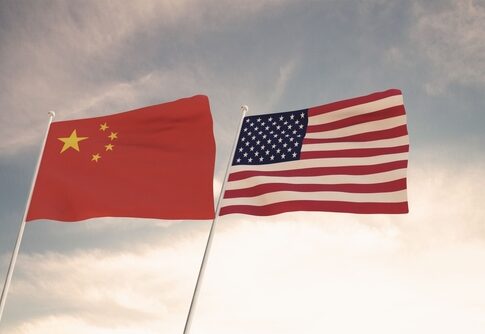Republican lawmakers demand that the FTC take action against Chinese companies that falsely label American flags as “Made in the USA.” China’s actions endanger both the domestic flag industry and consumer trust. This deceptive practice undermines consumer confidence and damages the American flag industry. Lawmakers argue that this behavior threatens the integrity of the “Made in USA” labeling.
Republicans Advocate for FTC Intervention
In a bold move to protect American industry and consumer rights, three House Republicans are leading the charge against deceptive Chinese manufacturing practices. Representatives Elise Stefanik, Virginia Foxx, and Nick Langworthy have formally requested that the Federal Trade Commission (FTC) take decisive action against Chinese-based companies that falsely advertise American flags as “Made in the USA” on popular online platforms such as Amazon and Walmart.
This initiative comes amid growing concerns about the accuracy of product origin labeling and its impact on consumers and domestic industries. The lawmakers contend that such deceptive practices not only mislead patriotic Americans, but also pose a significant threat to the US flag manufacturing industry.
NCTO & the American flag and #textile industry sincerely thank @RepStefanik for her lead in calling on the FTC to take immediate action to crack down on Chinese-made flags falsely labeled & advertised as Made in USA & being sold on online marketplaces. 👇https://t.co/lZlcnrzYPQ
— NCTO (@NCTO) November 1, 2024
Impact on American Industry and Consumer Trust
The problem goes beyond mislabeling; it strikes at the heart of American manufacturing and consumer confidence. The National Council of Textile Organizations (NCTO) has backed the lawmakers’ efforts, emphasizing the severe economic challenges faced by the US flag and textile industries as a result of an influx of cheap, falsely labeled imports.
“The U.S. flag industry and textile industry as [a] whole is facing economic distress—having lost 21 plants in the last 18 months—due to a flood of cheap, falsely labeled and subsidized imports, a lack of trade enforcement, and the gaping de minimis loophole that is allowing these bogus products to enter the U.S. from China duty free and uninspected” – NCTO President and CEO Kim Glas
Local flag manufacturers are feeling the pressure. Julye Spinelli, owner of the Saratoga Flag Company in upstate New York, reports a surprising 100% increase in the circulation of Chinese-made American flags. This surge not only threatens domestic businesses, but it also diminishes the symbolic value of the American flag itself.
American flags manufactured in China were falsely advertised as ‘Made in the USA,’ the lawmakers said.https://t.co/tMVkqB0xtO
— The Epoch Times (@EpochTimes) November 5, 2024
Legislative Efforts and Broader Implications
The call for FTC action is part of a larger legislative push to protect American industries and interests. Rep. Stefanik and her colleagues introduced the Make American Flags in America Act in June 2023, with the goal of ensuring that all American flags on federal property are manufactured in the United States. This move is consistent with broader congressional initiatives aimed at addressing strategic competition between the US and China.
The issue of mislabeled American flags is only one facet of the complex trade relationship between the United States and China. The Biden administration’s recent actions, including new tariff hikes on Chinese goods worth approximately $18 billion, demonstrate a continued commitment to protecting US industries and combating unfair trade practices. These measures, which are set to go into effect between 2024 and 2026, are aimed at critical sectors like semiconductors, batteries, and solar cells.
Call for Immediate Action
As the debate over US-China trade policies heats up, the call for FTC intervention in the flag industry mirrors broader national concerns. Legislators and industry representatives are calling for immediate enforcement of existing US laws to stem the flow of imported “counterfeit” US flags. This action is viewed as critical not only for protecting American businesses and jobs, but also for maintaining the integrity of a beloved national symbol.
The outcome of this initiative may have far-reaching implications for trade enforcement, consumer protection, and the future of American manufacturing. As the FTC considers its response, domestic producers and international trade partners continue to focus on this historic battle over the stars and stripes.


